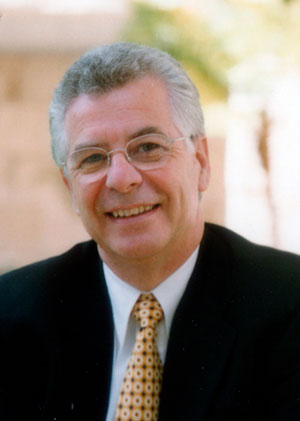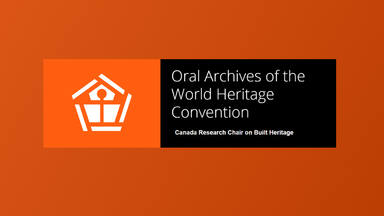
Interview
François LeBlanc
World Heritage Convention
François LeBlanc graduated in architecture at the Université de Montréal. He has also specialized in heritage conservation in Ottawa and at the University of York in the United Kingdom.
He has had a long career in Canada and abroad, first as a restoration architect for Parks Canada in the 1970s. In 1979 he was sent to Paris by the Canadian government to head the International Secretariat of ICOMOS. Upon his return to Canada four years later, he joined the Heritage Canada Foundation where he served as Vice-president for nine years. From 1992 to 2001, he was Chief Architect of the National Capital Commission in Ottawa. In this capacity, he was responsible for the conservation and renovation of some fifty historic properties in the region, including the official residences of the Prime Minister and the Governor General. He later worked as Field Project Manager at the Getty Conservation Institute in Los Angeles until 2007.
François LeBlanc has also been involved for over 20 years with organizations such as ICOMOS Canada and the International Association for Preservation Technology (APT). Now retired, he continues to act as a heritage consultant and teaches from time to time at Carleton University and the Willowbank School of Restoration Arts. His numerous publications range from philosophical reflection on heritage to technical conservation reports from hundreds of projects he has carried out in the field.
Interview with
François LeBlanc
7 April 2009, Ottawa, Canada
The following audio excerpts are from an interview with François LeBlanc by Christina Cameron the 7 April 2009 in Ottawa, Canada. His involvement in World Heritage dates back to the early years of the Convention and his narrative offers valuable insight into the atmosphere and the operations at the time, both for the World Heritage Committee and for ICOMOS. In particular, he recounts one of the most significant events of the period, namely the inscription of Jerusalem on the World Heritage List.
- 1. The World Heritage Convention
- 1a. Involvement and role of François LeBlanc in World Heritage: the Committee's session in 1979 in Cairo
- 1b. Involvement and role of François LeBlanc in World Heritage: Léon Pressouyre and the evaluation of the nominations at ICOMOS
- 1c. Involvement and role of François LeBlanc in World Heritage: the Committee's session in 1980 and the case of Jerusalem
- 1d. Aims and objectives of the World Heritage Convention
- 1e. The World Heritage List
- 1f. Key moments and decisions in the implementation of the Convention
- 1g. Overall assessment of the World Heritage Convention
- 2. The advisory bodies: performance of ICOMOS, IUCN and ICCROM
- 3. International solidarity among States Parties
Oral Archives of the
World Heritage Convention
Under the leadership of the Canada Research Chair on Built Heritage at the University of Montreal, an international team of researchers conducts interviews with pioneers of World Heritage to capture memories of important moments in the history of UNESCO Convention.
Launched in 2006, this initiative is part of the UNESCO History project that celebrated the 60th anniversary of the creation of UNESCO. The Oral Archives project records the precious witness of people closely associated with the creation and implementation of the Convention. Their recollections and views have greatly enriched the book by Christina Cameron and Mechtild Rössler, Many Voices, One Vision: The Early Years of the World Heritage Convention (Ashgate/Routledge, 2013).
